 Acupuncture is very effective for treating most health conditions. Any symptom that we experience is due to a reduction of blood flow to that area, whether it is a physical condition like pain or a mental condition like depression or stress. Acupuncture works by increasing highly oxygenated blood flow to the area that is in pain or to the organ that is causing a symptom. Acupuncture triggers the release of the body’s internal chemicals such as endorphins and enkephalins, which have pain-relieving properties. If you have pain that is lingering or is not being treated by other modalities, then acupuncture offers a time-tested, very reliable method of pain relief.
Acupuncture is very effective for treating most health conditions. Any symptom that we experience is due to a reduction of blood flow to that area, whether it is a physical condition like pain or a mental condition like depression or stress. Acupuncture works by increasing highly oxygenated blood flow to the area that is in pain or to the organ that is causing a symptom. Acupuncture triggers the release of the body’s internal chemicals such as endorphins and enkephalins, which have pain-relieving properties. If you have pain that is lingering or is not being treated by other modalities, then acupuncture offers a time-tested, very reliable method of pain relief.
Dr. Herrin specializes in a variation of the Balance Method called DNA or Distal Needling Acupuncture. This style of acupuncture is far more effective and sustainable than local needling. Use of this style of distal needling acupuncture produces instantaneous pain relief often described as “turning off a light switch” while effectively treating pain. The acupuncture points used are in very specific places on the body mostly located from the elbows to the hands and from the knees to the feet. Consequently, the patient can lay on their back and therefore, does not need to remove any clothing. The treatments are efficient, comfortable and extremely effective. “When I switched to using this Distal Needling Acupuncture style, my results were much better. I am now 90% successful in treating pain”says Dr. Herrin.
In addition to using the balance method or distal needling style of acupuncture, Dr. Herrin is certified in the Toyohari Japanese Meridian Therapy. Toyohari is a very gentle style of acupuncture. She often uses it for needle-sensitive patients and children. Dr. Herrin will incorporate whatever style of acupuncture is best for your condition and your level of sensitivity to needles.
In addition to acupuncture, Dr. Herrin, if needed, can choose from her other modalities such as Custom Herbal Formulas, nutritional counseling or Functional Medicine.
The World Health Organization recognizes these conditions as appropriate for Acupuncture Therapy:
Digestive Abdominal pain Constipation Diarrhea Hyperacidity Indigestion |
Emotional Anxiety Depression Insomnia Nervousness Neurosis |
Eye-Ear-Nose-Throat Cataracts Gingivitis Poor vision Tinnitis Toothache |
Gynecological Infertility Menopausal symptoms Premenstrual syndrome |
Miscellaneous Addiction control Athletic performance Blood pressure regulation Chronic fatigue Immune system Tonification Stress reduction |
Musculoskeletal Arthritis All pain including Back, Neck, Shoulder, Knee, Elbow, Wrist, Ankle and Sciatica, Spasm and cramping pain |
Neurological Headaches Migraines Neurogenic Bladder dysfunction Parkinson’s disease Postoperative pain Stroke |
Respiratory Asthma Bronchitis Common cold Sinusitis/Allergies Smoking cessation Tonsillitis |
Source: World Health Organization United Nations. “Viewpoint on Acupuncture.”
